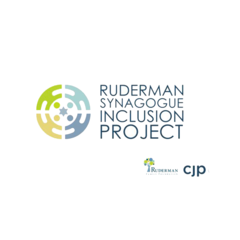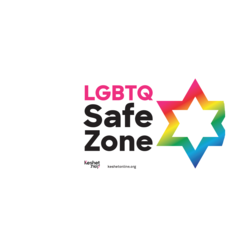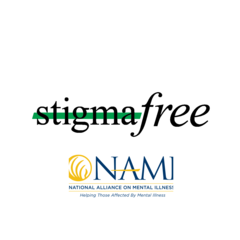Yom Kippur 2017
My Jewish journey is not one that spans continents, countries, or even states. Behind this Temple is the wooded path I used to walk through to come to Hebrew school three times a week during elementary school, twice a week for Hebrew High, to my Sunday school job working under the steady mentorship of Lois Edelstein, and to LEFTY board meetings. And while not cutting through the woods from my parents anymore, I still come several times a month not just to school for my children, but for myself.
When I told my mom I was going to share my journey today, she said, as only a mother can or maybe just my mother, “what’s so interesting about that? You came and you stayed”.
And yes, I came and I stayed because being Jewish and our Isaiah community has become a core orbit in my identity.
It has not always been this way. For a long time I would have identified my Jewishness as piece of me, something that I came to Isaiah to learn about, to be in community with others “being” Jewish, but when I was out in the world, while it was a piece of me, it was not present, not consciously accessible.
In college I went to hear a Puerto Rican poet read his work. I was struck that his poems, which were in English, use Spanish words or expressions without translation or explanation. Afterward during a discussion a student asked him about this—his answer was simple, he told us that we must write authentically and if the words that expressed us most are Spanish or Yiddish or Arabic or Farsi, we use them. He said, “this is who I am and that is what people will feel”.
As I came to understand my own identity, I embraced the words and teachings of Judaism outside of when I was just in community with other Jews but as my most public self.
My childhood memories are filled with amazing Jewish traditions—second day Rosh Hashanah services created by our family in the woods, by the ocean or on top of a mountain, with each of us reading something of our choosing and ending with a resounding shofar blow by my brother Sammy. Passover seder set with the same green tablecloth every year, my father reading from Dr. Martin Luther King, a recognition of others struggles as our own, and always a beautiful Miriam's cup handmade by my mother where she showed us to give voice and honor women’s central role.
All of this was a compartmentalized somewhere within me.
My brother Sam, who thrives with a developmental disability, used to ask my father what he would be when he grew up. I remember after Sammy had washed all of the dinner dishes he asked my father, “what will I be?”. I listened carefully as my father told him that he was going to be the best dishwasher ever. Sammy beamed with pride and I was struck that my father seamlessly recognized Sam’s inherent pride in his own work and echoed that with respect, and honored that there is dignity in all work.
At the time I did not see this as a Jewish response, but as many children, another sign that their parent is the smartest person on earth. This experience is a story I tell in my own community organizing as a central moment when I understood the connection of work and dignity. As I think about it now, I see my father’s response as Jewish—it is a fundamental Jewish value to recognize every person’s equal value and treat each other with dignity, and to honor labor in all forms.
In the middle of senior year in high school I met John, a quiet baseball player who loved Bob Dylan possibly as much, if not more, than me and who attended Mass every Sunday. We began to spend every free moment together and it made leaving for college that much harder. We decided to stay together and continued to see each other every other weekend sharing a love of literature, history, food, and long political conversations. He supported my every interest, learned along with me, and challenged me in the best possible way.
We talked generally about the future, and had some very complicated conversations about what it meant to have such rooted and different religious identities. While I was always clear that I did not know any other way to have a life, a home, and a family without being Jewish (which at the time meant thinking about how we would celebrate holidays) it also felt like a life without John was unthinkable. He truly is my beshert.
Ironically, while in college I saw my activism and self-expression as purely political. I did not have any association with any of the Jewish groups on campus. My closest friend in college was an Israeli Jew and while we would come to home to Isaiah together for the most Jewish holidays, we never lit Shabbat candles in our apartment, felt the need to be seek out a Jewish community, or think in any way about the intersection of our love of activism and being Jewish.
Upon graduation I was fortunate that John suggested I apply for a new year-long fellowship program called the Jewish Organizing Initiative he had found online. He thought—rightly—that this might be a good fit. The program, which is now JOIN for Justice, is an intensive community organizing program that trains young Jews. You are hired directly by an organization but have one day a week for training, skill building, and learning from text.
I was hired by the AFL-CIO as a very green but very eager organizer ready to make the world more socially and economically just. I must have been in the program for several months before a huge realization occurred—that my path to the program was because my Jewish identity was so central to my being, that my desire to make the world better was a deep family and community commitment to Tikkun Olam, that our responsibility as Jews was to contribute to making the world as it should be. JOI was helping me integrate my compartmentalized Jewish identity to become more whole, present and accessible in the world.
My work, my career is tzedekah—my first and true word.
Recently I was traveling with colleagues with whom I am very close to for a conference. On the surface, we are pretty different—one being a committed Catholic immigrant from the Phillipines, the other a Haitian-American pastor’s wife. While away one of them suffered a personal loss and could not get home until much later in the day. We sat together and after offering typical words of comfort I thought about what might help me. I asked her if she wanted to pray and if she wanted to me to offer a prayer. She did—it was what she would have done if she were with her family. The three of us held hands as I said the M’shabarach. She then prayed in Haitian Creole. We found each other in our own traditions and our own words. What seemly separated us brought us closer to one another to find strength.
So, yes, I came and I stay because on the path of not-knowing there is something we can find rooted within us and around us.
There have been so many moments where this has been true—in struggling with my fertility there were Jewish rituals that gave me hope and a sense of renewal, on Dylan and Molly’s first day of school this year we said the Shehecheyanu joyously and loudly.
And throughout this journey I have found consistent encouragement from this community. So yes, I came and I stay.
Not yet engaged, John came to services with me and felt unconditionally welcomed. He recognized our commitment to social justice and found respect for the intentionality of our traditions and the telling of our collective story.
I sat with Rabbi Jaffe before John and I were married to discuss how to respectfully acknowledge John and my differences during our wedding ceremony, but also have it feel authentic. I never felt judged but more embraced. And then again before our first child was born, we came to him to talk about the tradition and meanings of a naming ceremony. I cry often (happy tears and sad tears as my girls say) and in that meeting cried, as I heard our Rabbi acknowledge John’s path and John’s own sacrifice honored.
I came and I stay because my Jewish journey is still in motion and this is the community that holds us as we choose our path forward.
I stay because when I feel unsure, want to celebrate, or recenter myself, I turn here, to our words, to our texts and to our community.
L’shanah Tova.





